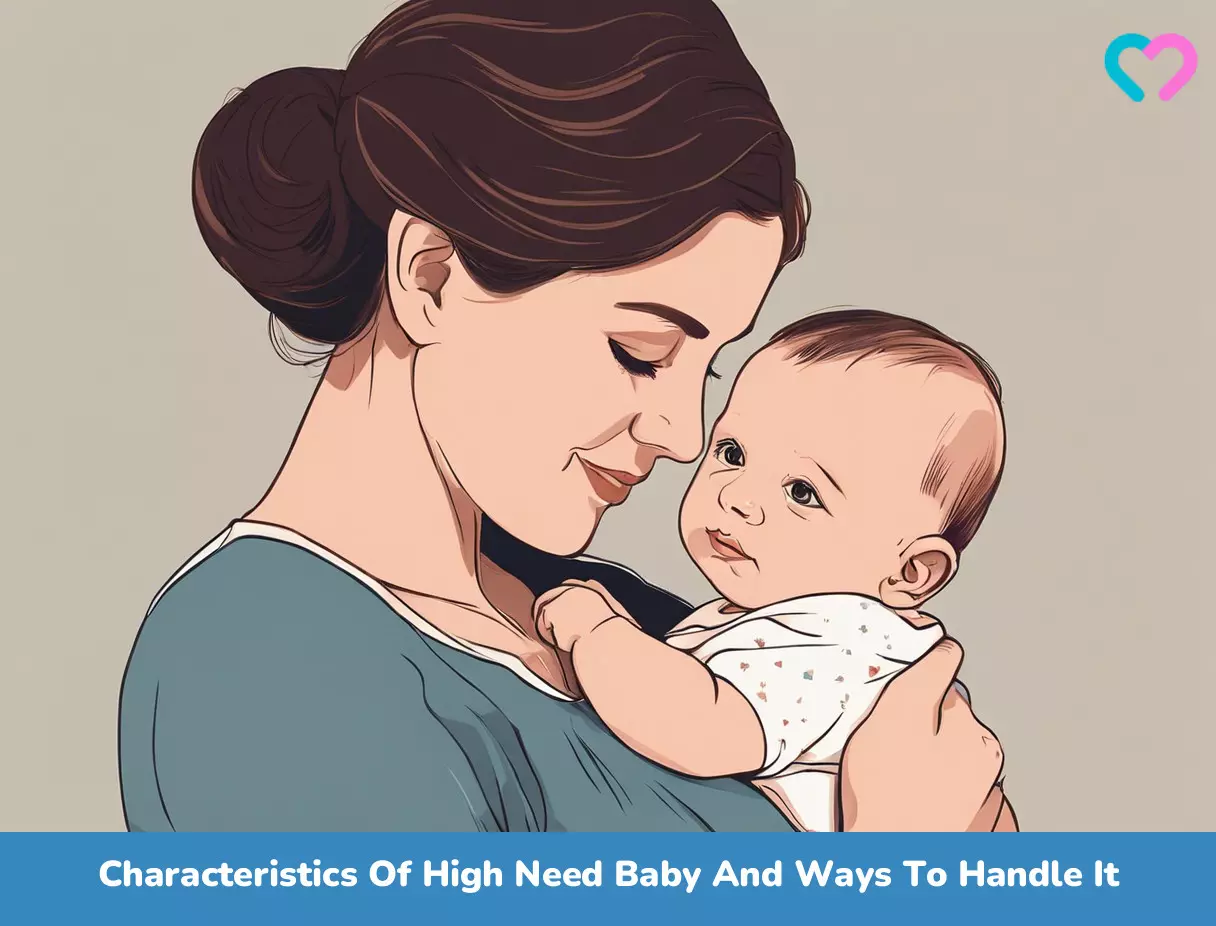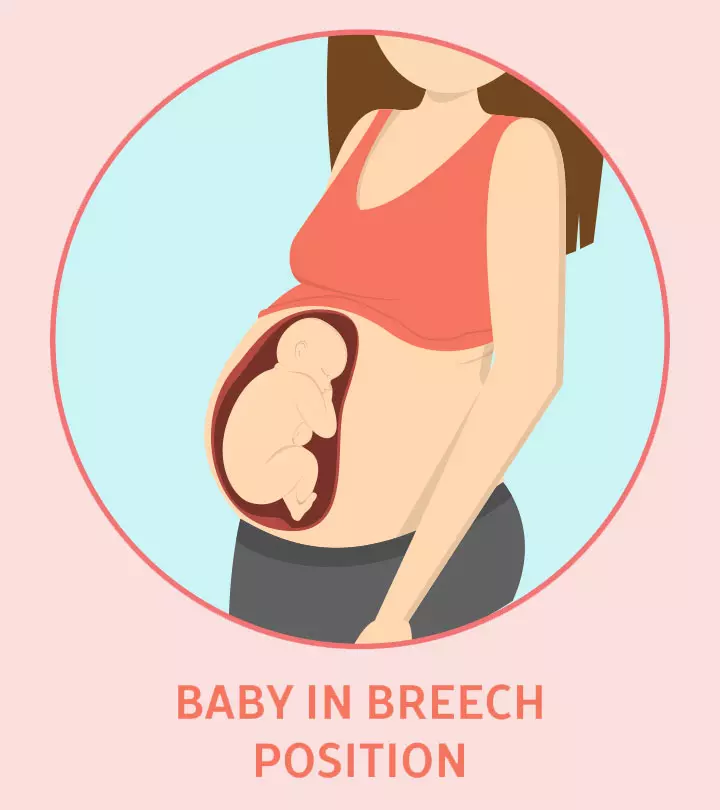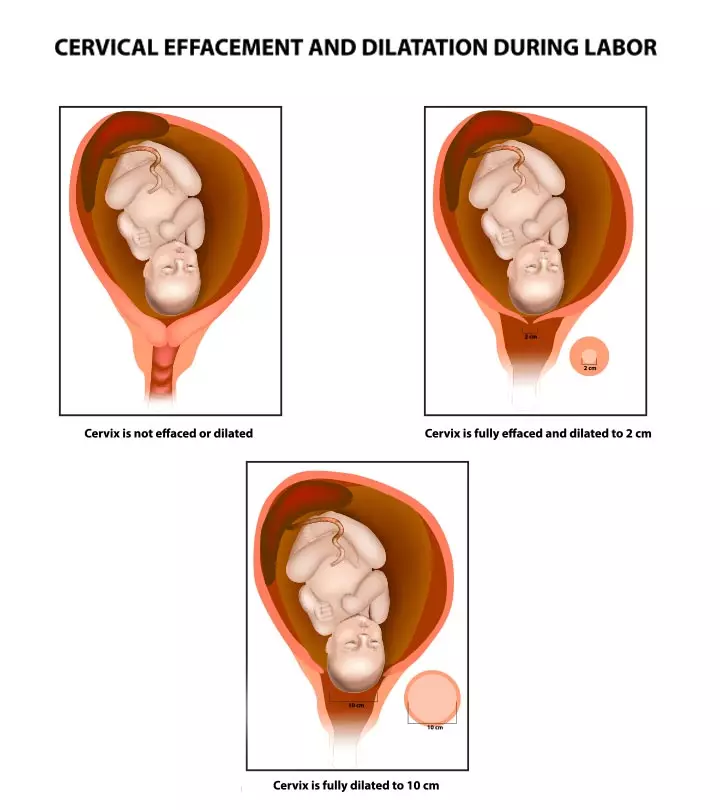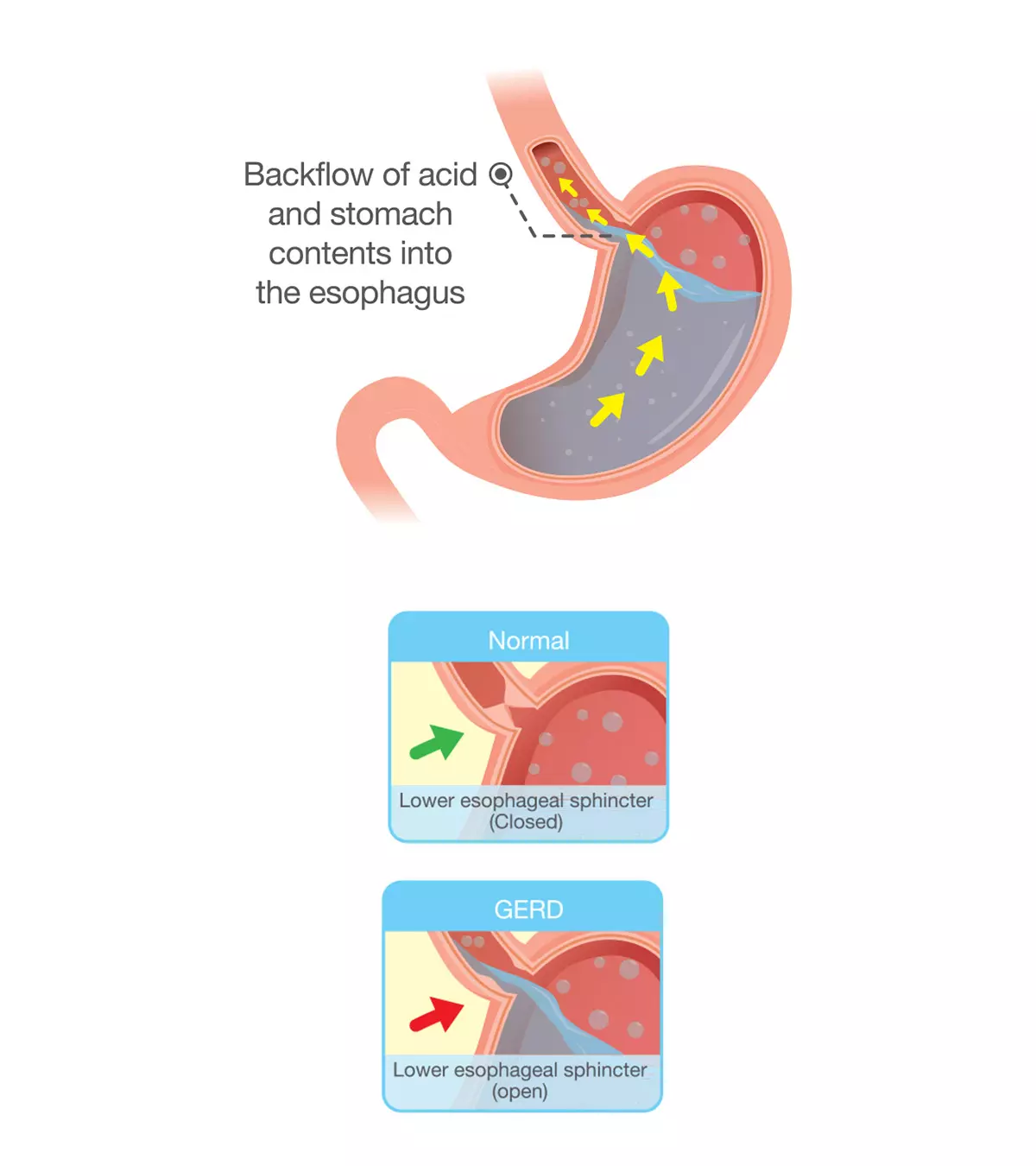
Image: Shutterstock
Raising high needs babies can be challenging since they constantly require attention and easily get agitated when they are left to entertain themselves. Every baby’s personality is different; some tend to stay calm if their needs are met, while others remain dissatisfied and restless. Persistent display of fussiness and restlessness often indicates a high need behavior.

High needs babies may get irritated if their needs are not met promptly, and it is often difficult to satisfy and calm them. The physical and emotional demands can leave parents feeling inadequate, anxious, and exhausted, so seeking support during this time is essential. However, some parents and caregivers succeed in managing these behaviors with the right tactics.
Read on to learn more about the effects and ways to deal with high needs babies.
Key Pointers
- High need babies demand and require constant attention.
- A high-need baby is characterized by hyperactivity, a demanding personality, and separation sensitivity.
- Colic babies are different from high need babies because they are less demanding and calm down after their needs are addressed.
Signs And Characteristics Of High Need Babies
The signs of high need babies may vary. The following are some of the common habits and characteristics of high need babies. Recognizing these traits helps parents meet their children’s special needs and create a balanced home environment.
- Intense: High need babies act intensely for every feeling and activity, including crying, protesting, and feeding. These babies may come across as overly motivated and driven to achieve their demands than their peers.

- Hyperactive: These are often hypertonic babies, meaning that their body muscles are usually tensed and ready to react quickly to any action. Such babies may stiffen and arch their back when a new person tries to hold them.
- Draining: Fulfilling the baby’s unending needs drains out the energy from caregivers. Parents with high needs babies may feel more exhausted than those with babies with normal needs.
- Frequent feeding: A high needs baby may demand feed for comfort, even when they are not hungry or have been fed recently.
- Demanding: The only way the baby asks for things is through demands. For instance, if a high need baby wants to be held by a parent, they may not merely request and instead throw a tantrum until the demand is fulfilled.
- Awakens quickly: High needs babies need more of everything except sleep. They get energized quickly from naps, and may sleep for fewer hours at night than other babies.

- Dissatisfied: This is the part of the high needs baby’s personality. The caregiver fulfills the need, but the baby is still not satisfied and wants the parents to address the demand continuously.
- Separation sensitive: Most babies develop separation anxiety between the ages of eight and 12 months (1). However, high need babies tend to be more sensitive to separation and develop anxiety easily when in the company of strangers. The baby may also take more time than usual to accept a new face as a caregiver.
- Can’t put the baby away: A high need baby wants to be held all the time. Any attempts to place this clingy baby elsewhere may result in hysterical crying. A high need baby may also demand to be held and cuddled each time they feel scared or are in discomfort.

- Unpredictable: What works for a high need baby today may not work tomorrow; unpredictability becomes the norm. The baby may constantly change their desire and comforting actions, such as cradling, lullabies, or pacifiers.
 Quick fact
Quick factDifference Between A Colicky Baby And A High Needs Baby
Here are a few notable attributes of colicky babies that differentiate them from high need babies.
- A colicky baby cries with intensity, and the reason behind their cry is often gas or digestive discomfort (2).
- A baby with coliciPeriodic and predictable crying episodes in infants for an extended period with no definitive cause. is likely to appear in pain during a colic episode. They will arch their back or kick legs in an attempt to release the digestive gasses.
- Unlike high need babies, colicky infants observe a routine and have predictable behavioral attributes. They also do not seem hyperactive and sleep adequately.
- Colicky babies are not demanding like high needs babies. Once the underlying problem is addressed, a colicky baby calms down.
- Colic tends to be most common during the first six weeks of life and usually goes away by the age of four months (3). A high needs baby is likely to display fussiness and crying even into toddlerhood.
 Point to consider
Point to considerWhy Are Some Babies Needier Than Others?
It is not fully known why some babies tend to have high needs. Babies can have varying personalities and different reactions to the same environment or situation (4). A baby may have a tolerant reaction to a situation, such as a wet diaper, while another baby may display intense crying to attract the parents’ attention and get the issue resolved quickly.
It is likely that some babies have high needs due to their specific personality, which might be affected by a combination of genetic and environmental factors (5). However, it is not entirely known if it is a result of nature, nurture, or both, thus parents should neither blame themselves nor the baby for the high needs behavior.
Effects Of Being A High Needs Baby
The effects of a high need personality could vary and may not last forever. Some studies note that a few adulthood behavioral attributes, such as conscientiousnessiA personality trait associated with an individual doing their work in a careful and thorough manner. and impulsiveness, may originate in childhood (6). However, infancy is too early a stage to determine a person’s ultimate personality. Also, childhood personality attributes need not be binding since a child’s behavior can significantly change even through the end of the teenage years.
Therefore, the long-term effects of a high need personality on the baby are not fully understood. If you have any concerns related to your baby’s high need behavior, speak to a pediatrician.
Andrea Dekker, a mother of four children, shares her experience raising a high-needs baby and how her baby has evolved over the years. She says, “Fast-forward 6 years, and I can honestly say Nora is just like any other typical child her age. She has her own unique quirks, mood swings, and personal preferences, but she can function appropriately in most situations (i).” Andrea’s experience illustrates that having a high-needs baby in infancy may not necessarily have a lasting adverse impact on a child’s behavior as they grow up.
Ways To Deal With Your High Needs Baby
Parents may explore tactics that work the best in calming the intense high need behavior of their baby. The following are a few suggestions.
- Do not immediately address the baby’s demands. A demanding infant may eventually learn that vehement demands will not be entertained. Thus, wait and observe if the baby cools down and stops the behavior.
- Remain calm and patient. Yelling at the baby or displaying aggressive gestures might make matters worse and exacerbate the high need behavior.

- Address all the essential demands of the baby, such as timely feeding and changing the diapers. As a parent, you are quite likely to sense which demand is natural and which ones are motivated by high needs.
- Observe the baby when they display a high need behavior. You may even maintain a notebook to take notes. It will help you identify triggers and signs that are unique to your high needs baby.
- Make a note of the games, activities, or toys that seem to calm your baby down. You may offer a pacifier to the baby, which is known to calm fussy babies (7).
- Distract the baby each time they display high need behavior. Engaging the baby in a conversation, showing them something interesting, or playing games that intrigue babies, such as peek-a-boo, could trick the baby into calming down.
- You may try massaging the baby periodically since it is known to relax babies (8). It may eventually help curtail hyperactivity and help the baby sleep better.

- Take the help of your partner and family members to manage the baby’s behavior. You may attain success more easily if multiple caregivers adopt the same strategy to deal with a high need baby.
- Take the help of a support group of parents encountering similar situations. You may also explore playgroups for babies with high needs. Join local parenting groups or online forums for high-needs children. Community workshops, parenting books, and expert blogs can also provide helpful strategies and support.
- If nothing works, hand your baby to a trusted caregiver, and take a break. It would be a change for you and the baby. A change in caregiver may also break the cycle of high need behavior of the baby.
 Point to consider
Point to considerOnce you identify the cause and cure of your baby’s high need behavior, follow it diligently. Take the help of a pediatrician or a pediatric behavioral therapist if required.
Frequently Asked Questions
1. Will a high need baby develop anxiety later in life?
There is no precise way to tell if a high needs baby will develop anxiety during adulthood. The onset of anxiety is influenced by multiple factors, including biological and environmental factors, which may manifest later in life (9). Therefore, infancy could be too early to accurately tell if the baby will develop anxiety later in life.
2. Is a high need baby’s intelligence affected by their behavior?
There is no evidence that a high need behavior could enhance or diminish the baby’s intelligence.
3. Will a high needs baby develop ADHD?
Attention deficit hyperactivity disorder or ADHD is a neurodevelopmental disorderiA group of medical conditions affecting the neurological development and functioning in babies. . There is no single symptom and diagnostic procedure for the condition (10). A precise diagnosis of ADHD is only possible after the age of four years (11). Infancy could be too early to determine if the baby would develop ADHD later in life.
4. When do high need babies get easier?
Many babies are more demanding and fussy in the initial months after birth. It is because they are in a different environment and are learning to communicate in new ways (12). However, as they grow, they become more manageable. The exact age when babies become easier to manage differs from child to child. It becomes easier for some high need babies after a few months, while for others, it may take a year or more. To help your child calm down, you may hold them in your arms, make them listen to a calming sound, and avoid overstimulation (13). If you feel concerned, talk to a doctor to check their physical health.
5. How can I manage feelings of guilt as a parent of a high needs baby?
Remember, every child is unique, and seeking help does not indicate weakness. Make time for yourself and ask for support when needed. Knowing you are doing your best can help reduce guilt.
A high-needs baby usually requires extra love and support, which could be exhausting for the parents and caregivers. Be observant of your baby’s triggers to help prevent fussy behaviors. With time, you may be able to better comprehend and manage your baby’s behavior. Remember, your baby’s demanding behavior is not your baby’s mistake, and it could be a normal part of their development. Though you may feel disappointed with your baby’s behavior, this is a temporary phase that shall pass soon. However, if you have any concerns regarding your baby’s behavior, consult your pediatrician.
Infographic: How To Care For Yourself While Caring For Your High Need Baby?
Babies absorb the emotions and stress around them like a sponge. If you are stressed, it could affect your baby too. Go through the infographic to learn a few tips to reduce parenting stress while caring for your high need baby.
Some thing wrong with infographic shortcode. please verify shortcode syntax
Illustration: Characteristics Of High Need Baby And Ways To Handle It

Image: Stable Diffusion/MomJunction Design Team
Let us look into the unique needs of high-need babies and identify the most effective strategies for providing them with the best care in this video.
Personal Experience: Source
MomJunction articles include first-hand experiences to provide you with better insights through real-life narratives. Here are the sources of personal accounts referenced in this article.
i. Our experience with a high-needs child (6 years later);https://andreadekker.com/high-needs-child-update/
References
1. Emotional and Social Development: 8 to 12 Months; American Academy of Pediatrics
2. Gastrointestinal Problems; Stanford Children’s Health
3. Colic; John Hopkins Medicine
4. Understanding and Adapting to Individual Temperaments; U.S. Department of Health & Human Services
5. Is temperament determined by genetics?; U.S. National Library of Medicine
6. Sarah E. Hampson, Mechanisms by Which Childhood Personality Traits Influence Adult Well-being; NCBI
7. Colic Relief Tips for Parents; American Academy of Pediatrics
8. Fussy Babies; C.S. Mott Children’s Hospital
9. Generalized Anxiety Disorder (GAD) Symptoms & Causes; Boston Children’s Hospital
10. About Attention-Deficit / Hyperactivity Disorder (ADHD); CDC
11. Clinical Care of ADHD; CDC
12. 2-3 months: newborn development; Raising Children
13. How to Calm a Fussy Baby: Tips for Parents & Caregivers; Healthy Children; AAP
14. Children with Shy or Slow to Warm Up Temperaments; ZERO TO THREE
Community Experiences
Join the conversation and become a part of our nurturing community! Share your stories, experiences, and insights to connect with fellow parents.
Read full bio of Dr. Neha Bhave Salankar
Read full bio of Rohit Garoo
Read full bio of Dr. Ritika Shah
Read full bio of Ghazia Shah
















